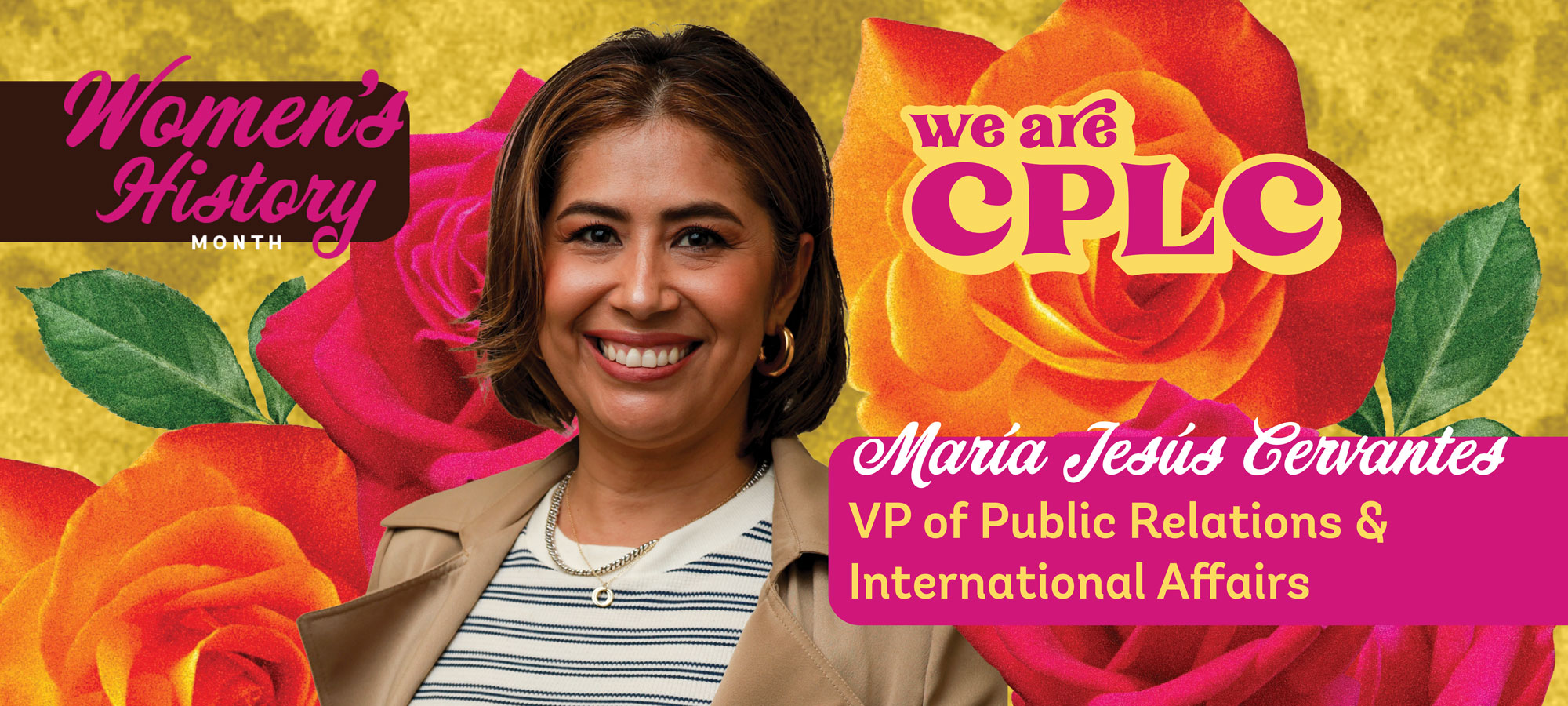
Vice President of Public Relations & International Affairs, CPLC
2024-03-29
This blog is part of our “We Are CPLC” series of letters from CPLC staff. We hope you are inspired by these stories of our community by our familia. When you donate to CPLC, you directly support their work.
All my life, I’ve been surrounded by strong women.
Women who lost their husband and had to fend for themselves and their children. That was the story of my grandmother, my aunts, and my mom.
My father, a seasonal farm worker, was killed by a drunk driver one night in California. Across the border in Sinaloa, Mexico, my mom suddenly had to figure out how to carry on without him—with a baby on the way. She was four months pregnant with me.
I wonder how alone she must have felt.
My name is María Jesús Cervantes, and I am the Vice President of Public Relations & International Affairs at Chicanos Por La Causa (CPLC).
I grew up in my grandmother’s house with my aunts and cousins, who essentially became my own siblings. It was a wonderful home of mostly women, each one dealing with grief in her own way. Yet, the resiliency and strength were palpable.
At 11 years old, I moved to Phoenix, Arizona, to get an education. It was difficult to do, but difficult was not something new to me. I went on to earn my college bachelor’s degree in journalism and started working as a news reporter.
Among my duties, I was reporting on the immigrant marches, and the stories I was covering started becoming too personal for me. They reopened old wounds. Like the time my brothers and I were at the community pool. We were having fun, when a lady from Germany came up to them and started screaming that my US-born brothers needed to go back to Mexico.
I couldn’t understand how somebody could have so much hate for someone I loved so much—and somehow, she believed she had more right to be here because of an unjust immigration system based on prejudice.
I felt so powerless. Yet, the injustice fueled a fire in me and empowered me to do something about it.
That’s how I was feeling again with the immigrant marches: I was tired of being a bystander. So, I quit my reporter’s job where I was required to be neutral. I wanted to take a side—and take a stand to make a difference.
A month later, I got a voicemail from the Consulate General of Mexico in Phoenix for a position in Media Relations and Political Analysis. After I started my new job, I realized “Yes. This side, I like it.”
Every other day, we reunited families. There were many unaccompanied children. But one case that has stuck with me all these years was of a baby girl who was six months old. She had been abandoned in a hotel by the coyotes (smugglers), and the police brought her to our office.
When I held the tiny, defenseless baby and looked into her face, I wondered, What kind of desperate situation would a mother have been in to do this? To hand her baby to a stranger and send her to another country on her own? That whatever she was facing back home was worse than whatever unknown world awaited her on the other side of the border?
Which brings me to the present: every election cycle, we are promised immigration reform. People march and you are told to vote, that that is what will make a difference. So many efforts go into getting a candidate elected.
But every time, it’s like el novio que te deja en la iglesia (the groom who leaves you at the church). You think, But you promised me, you told me you’d do it in your campaign.
It’s beyond frustrating.
When this happens, you have two options. You either give up completely—you live life separated from what keeps giving you those ups and downs. Or, you go cry, then get back up and begin again.
A U.S. citizen, I am the result of immigration reform. I know what it feels like to be on both sides. Frustrated, scared, disheartened. And I know how it feels when immigration reform is finally passed. Finally, a sense of belonging no one can take away.
For the first time, you feel seen. You have no reason to hide or feel ashamed and you are full of possibilities.
And now, I think to myself, What am I doing for my family? Why don’t I keep trying?
It’s a lot of pressure. But the women in my grandmother’s house and throughout my life have shown me women are capable.
We are alegres, luchonas, fearless, strong.
And, we are fragile.
Sometimes, we feel all of this on the same day. And we might want to simply give up. But we must keep pushing forward.
Pushing for change. In our home. Our workplace. Our community.
That’s what we do.
Each day I come into my office, despite my frustration, I decide to take the second option.
I cry. Then I get back up.
What option will you take?
Sincerely,
